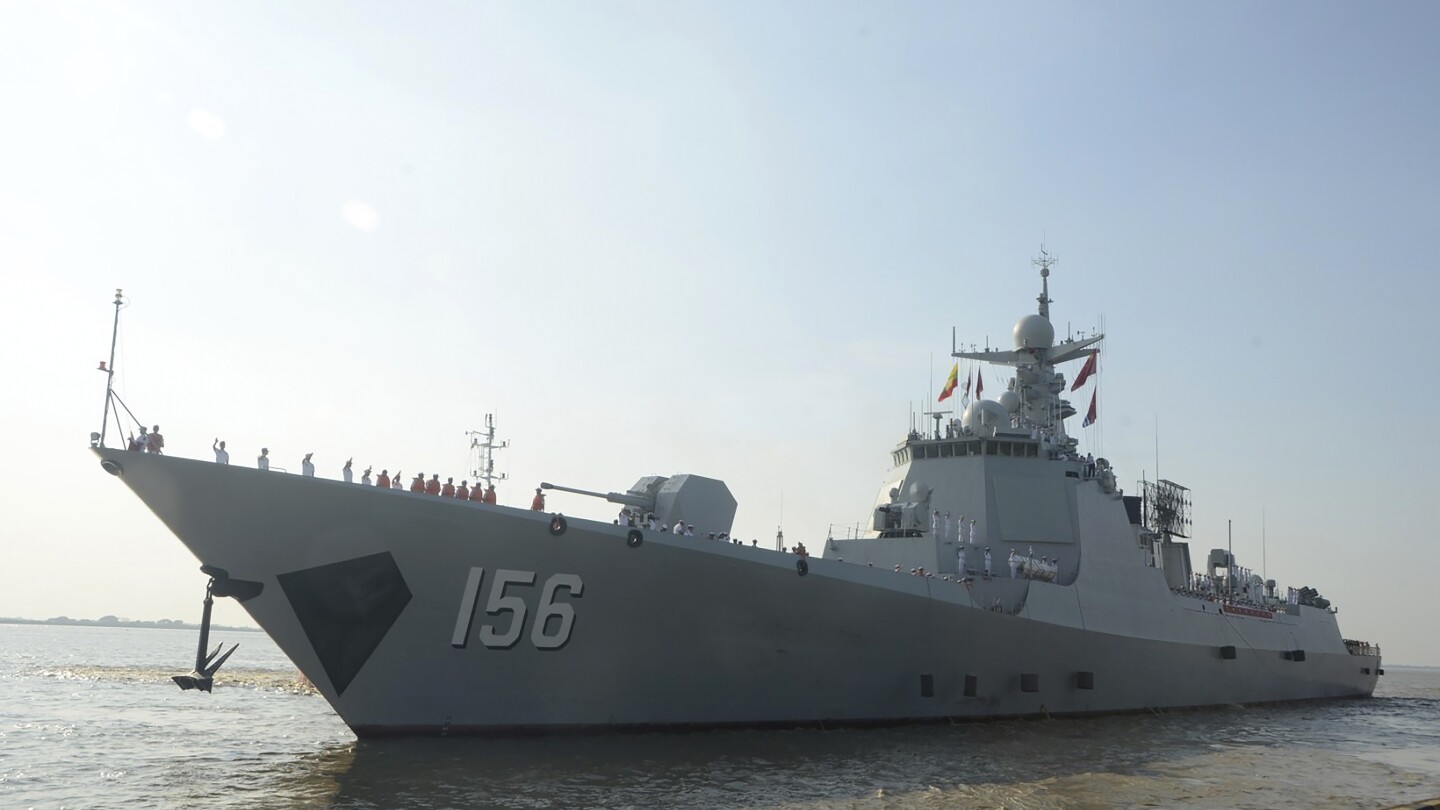BANGKOK (AP) — Myanmar and China are conducting naval drills together as the military government in the Southeast Asian nation loses ground in its northeast border region to a coalition of militias that also has strong ties to Beijing.
State-run Myanma Alinn newspaper said Wednesday that three Chinese vessels were anchored in Yangon, Myanmar’s largest city, and that officials from both nations met Tuesday to discuss the maritime security exercises.
The Chinese vessels – the destroyer Zibo, frigate Jing Zhou and supply ship Qian Dao Hu – carry about 700 sailors and arrived at the Myanmar port Monday. The report didn’t give more details on the drills.
Myanmar’s military seized power from an elected government in 2021 and since has been in armed conflict with pro-democracy forces and ethnic militias.
The visit of the Chinese vessels comes during an upsurge in violence on Myanmar’s border with China by the Three Brotherhood Alliance, a group of militias that launched a coordinated offensive against the ruling military on Oct. 27.
China is Myanmar’s biggest trading partner and maintains good relations with the ruling generals. The groups in the alliance also have good relations with China and have vowed to protect foreign investments such as Chinese-backed projects in territory they control.
The alliance has claimed widespread victories including four border crossings in the northern part of Shan state, and the military government acknowledged soon after fighting began that it had lost three towns.
The alliance’s offensive has energized the nationwide armed struggle to overthrow the military regime that was installed after the army seized power, and fighting has spread to many parts of the country.
On Wednesday, the resistance forces in the northwestern Chin state seized a small town in Matupi township bordering India, according to Salai Danny, a spokesperson of the Chinland Defense Force-Zotung militia group.
Beijing has called for a cease-fire and has said the warring parties should try and resolve their differences through dialogue. It has not, however, used its influence with the militia groups to pressure them to put an end to the fighting.
Before the offensive, China had been growingly discontented with the military government’s inattention to large-scale criminality in Myanmar near the border, including drug trafficking and cyberscam centers.
As the Three Brotherhood Alliance has gained ground, thousands of Chinese nationals involved in such operations have been repatriated into police custody in China.
Supporters of Myanmar’s ruling generals have held several demonstrations in major cities accusing China of aiding the militia alliance.
Maj. Gen. Zaw Min Tun, spokesperson of the ruling military council, was quoted in state media Wednesday as saying that Myanmar and China remain strategic partners and have close and friendly communications.

